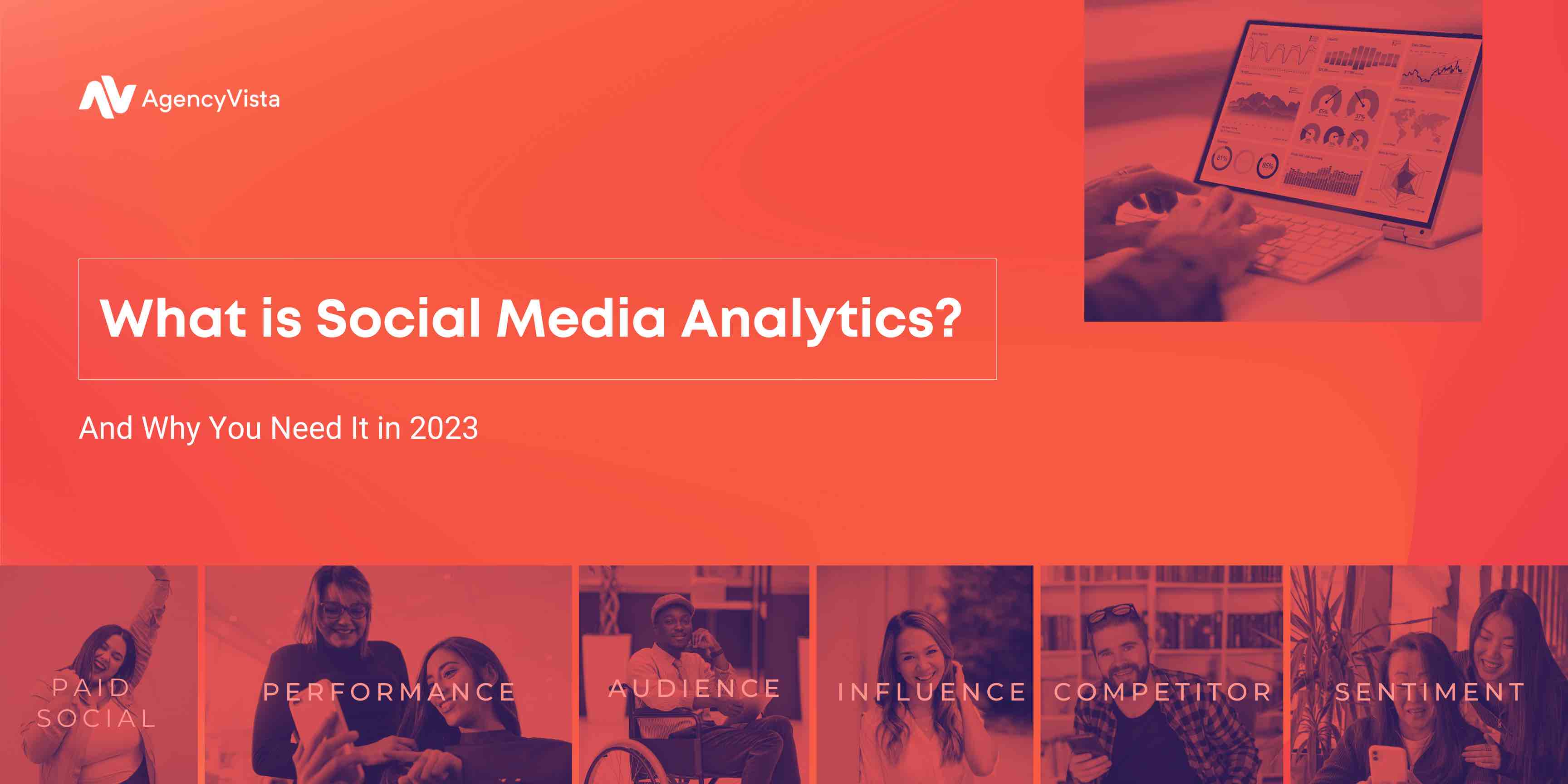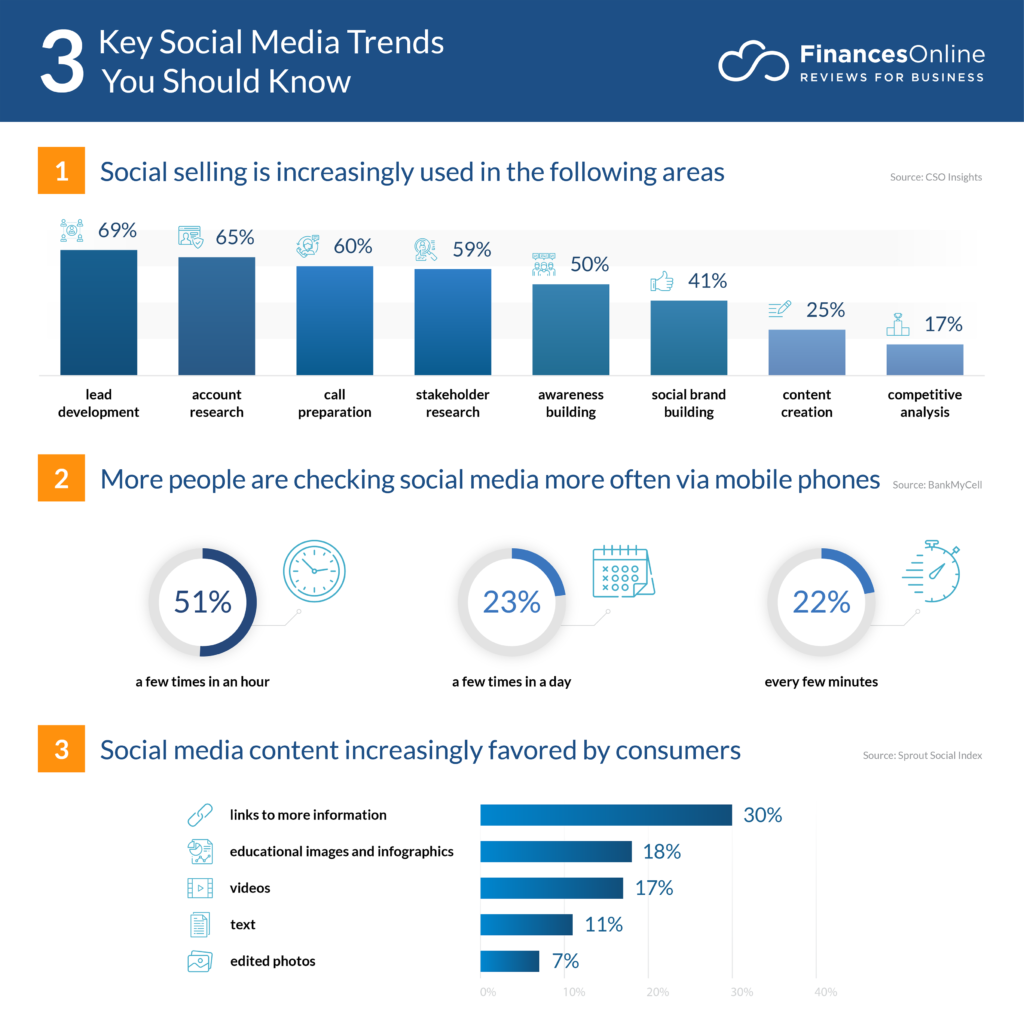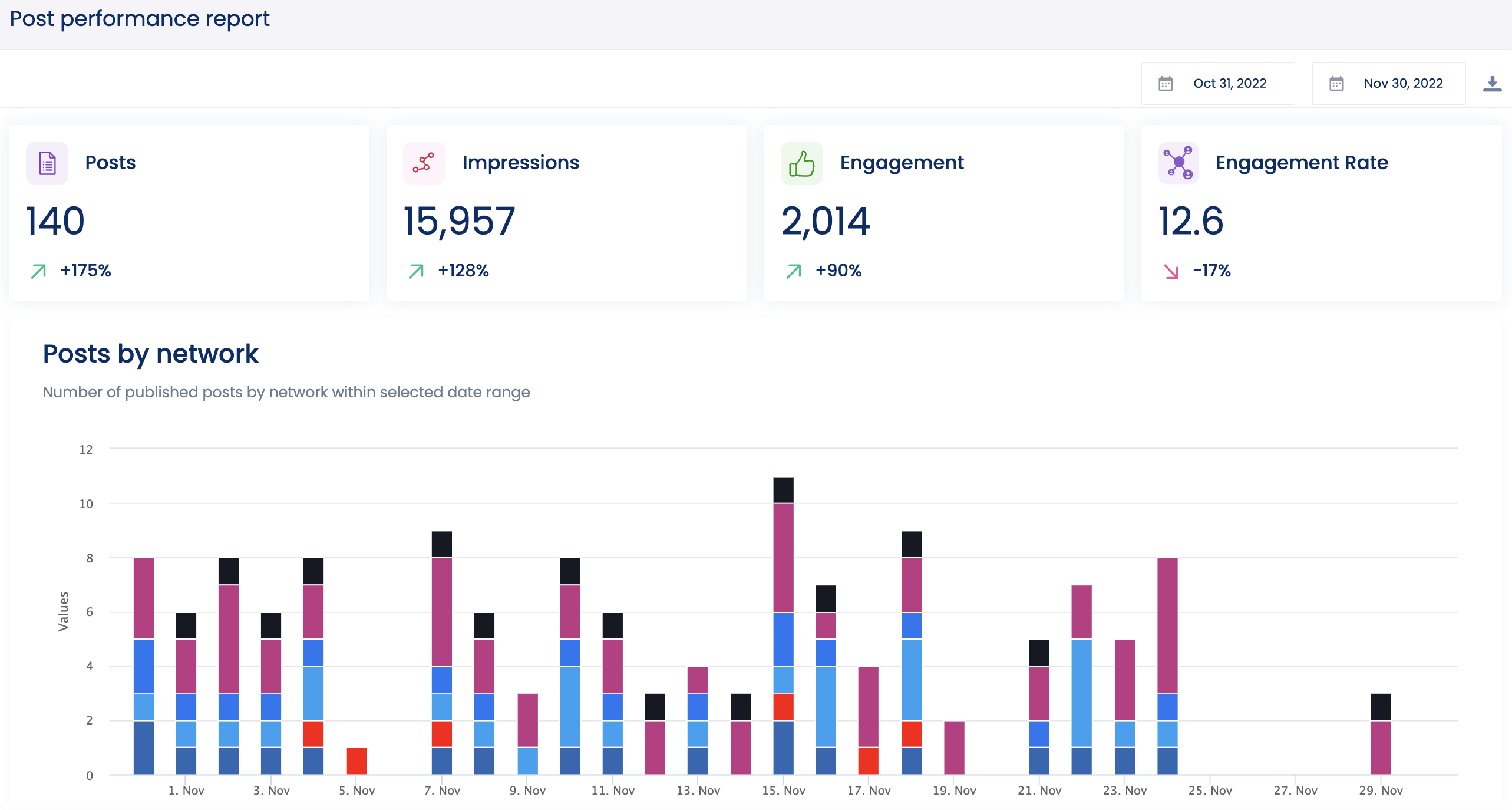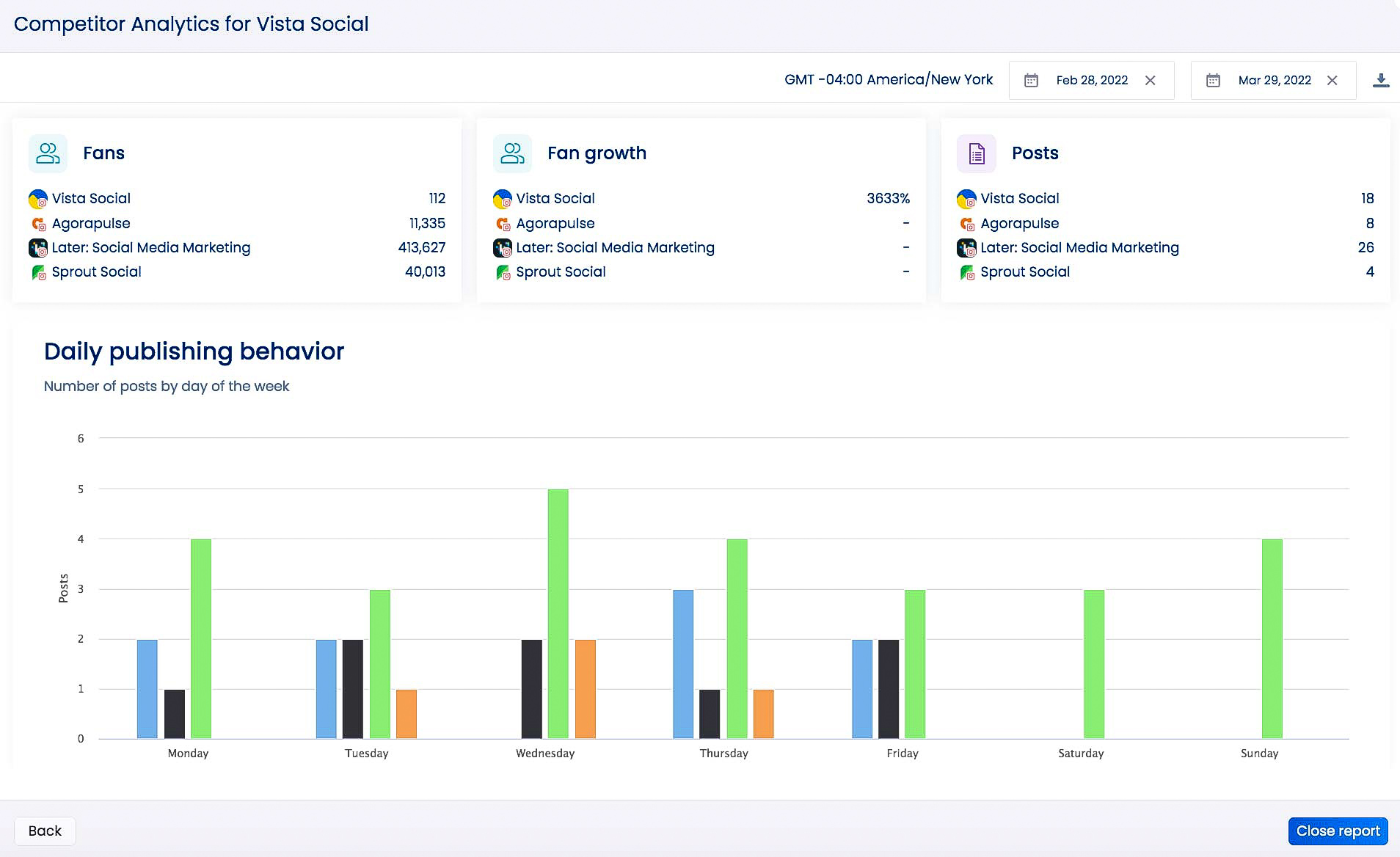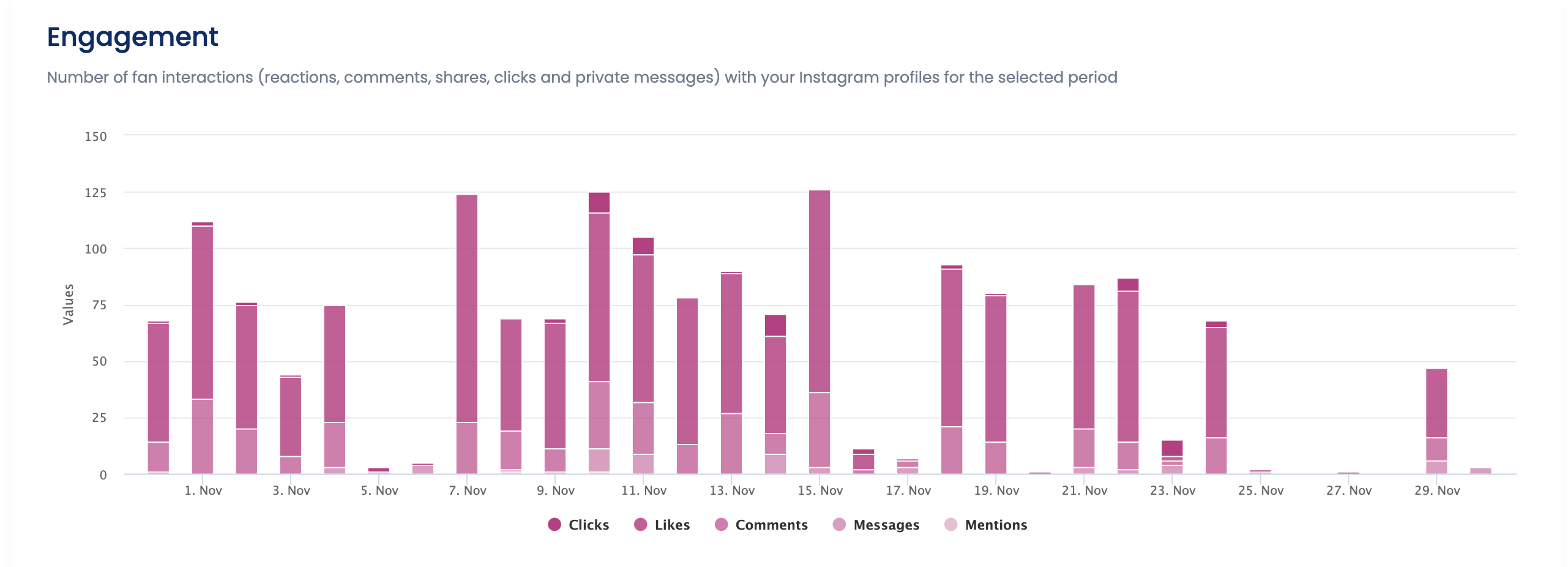Have you been wondering what exactly social media analytics is?
With social media becoming a major platform in marketing, using social media analytics to measure marketing results is also becoming increasingly important.
Social media has become an essential avenue for building key relationships with your target audience and increasing revenue.
Because of this, social media data is crucial when making important business decisions and gathering insights for improving your strategy.
Businesses can use social media analytics to better understand and serve their audience. It can help you learn what specific marketing techniques are working or not for your brand. It can also shed light on problems your brand is currently facing or trends you must consider.
What is social media analytics?
Social media analytics is a process involving the collection and analysis of unstructured social media data to evaluate the performance of your account.
It can help businesses understand their customers and their behaviors. For example, say your team spends a ton of time creating content that isn’t driving results.
Social media analytics can help you improve your current strategy by uncovering the following:
- When it’s the best time to post for each social media network
- What hashtags drive the best results
- Which content type gets the most engagement
- How your content performs against your competitors
- Which platforms are driving the highest engagement
A good social media analytics process can help businesses better connect with their target audience and communicate their offering in a way their followers are the most receptive.
What metrics does social media analytics track?
- Performance analytics
- Audience analytics
- Competitor analytics
- Paid social analytics
- Clustering analysis
- Influence analytics
- Sentiment analysis
Social media analytics involves tracking almost every detail on social sites. Many businesses use them for obvious reasons, such as fast growth and better insights.
Suppose you’re a business serious about improving your social media. You’ve come to the right place. Here are some of the most critical metrics that most social media analytic tools track:
1. Performance analytics
This metric is the most important one that no business should overlook. Performance metrics include conversions or how many visitors from your social profiles purchased your product or service after they visited.
Many social media management tools have performance analytics for better handling of accounts and easy data reporting.
2. Audience analytics
Audience analytics is another important metric you prioritize. This metric often includes your audience’s growth rate, the number of social media followers, their country of origin, their age, and sometimes even their gender.
The best marketing tools for businesses always include audience analytics in their list of features. This metric is vital for huge enterprises with an extensive reach and a wealth of data to measure.
3. Competitor analytics
Competitor analysis is a brand strategy used to keep track of competitors and use data to differentiate your business.
This metric includes understanding customer pain points, the best times to post, average followers, the brand your audience follows, and the engagement rates of your competitors.
It can also include (if your company has SEO) a list of competitive keywords you should rank for.
4. Paid social analytics
Many businesses now purchase social ads. It’s one of the most common types of advertising.
If you’re a business that spends a considerable amount of money on social media ads, it’s best to ensure that it’s working through paid social analytics.
Paid social analytics include the evaluation of several performance indicators, such as the number of ads, click-through rate, cost per engagement, cost per purchase, and campaign ROI. This data can tell your business where your money is going and how effective it is.
5. Clustering analysis
This metric can help businesses unearth discussions filled with insights. This tool can also help identify keywords and concepts in your social media data.
You can see the popular words used by your customers and make associations between these words. By extracting valuable ideas from your social media data, you can create better development goals for your product strategy and digital brand marketing.
6. Influence analytics
This metric entails tracking the total mentions of your product or company in shared social posts, tweets, or articles. It includes the close tracking of your social media campaign and evaluation of the strengths of the influence.
Your brand can generate high engagement through influence analytics by evaluating which marketing strategy leads to better customer impact.
7. Sentiment analysis
Sentiment analysis is a powerful way to analyze opinions of how people talk about your brand or company. Instead of simply counting the number of mentions and comments, it also considers the words used in these comments.
The tools used for this will analyze the words used in your mentions and track the number of negative and positive words.
What are the benefits of social media analytics to your business?
1. Understand your audience
Understanding your audience is the best way to drive growth to your brand. Analytics will show you what works, which days and times to post, and what content your fans like the most.
2. Gain key insights for making data-driven decisions
Once you’ve learned essential data from social media data, you can tweak your strategies so your audience will respond better. These insights can help improve engagement rate, impressions, and performance.
3. Save you time and money
With analytics, you can build your follower while reducing the time spent on your social media account.
Now that you have all the key information you need to improve the quality and strategy of your social media account, you can take specific steps without spending more time planning or investing in tools that don’t work.
4. Boost campaign performance
Analytics lets your marketing teams learn what factors influence your customers’ purchasing decisions. This knowledge will allow them to create a successful campaign and social media monitoring strategies. Adopting these tools will also help them improve certain aspects that aren’t working.
5. Learn trends related to your industry
Besides learning more about your target audience, you’ll also know essential techniques to improve your content automation and post quality.
By knowing which trends result in better engagement rates, you can choose to revise your current strategy and posting times. This will help you better understand what works at a certain time or date.
6. Keep up with competitors
Know what your competitors are doing right and what you can do to stand out. Social media analytics allows you to see what approach your competitors have taken.
This data can give you a huge competitive advantage. You may choose to develop an entirely new product based on this data alone.
Grow your business with social media analytics today!
Social analytics is an effective tool to enable businesses to create better marketing strategies.
When evaluating your social media data, the most important thing to keep in mind is your audience.
You should show your audience that you are a brand that’s worth their time and money.
Any business can go viral and instantly get famous on social media, but it’s always the reliable, innovative, and trustworthy that gets into most customers’ hearts.
